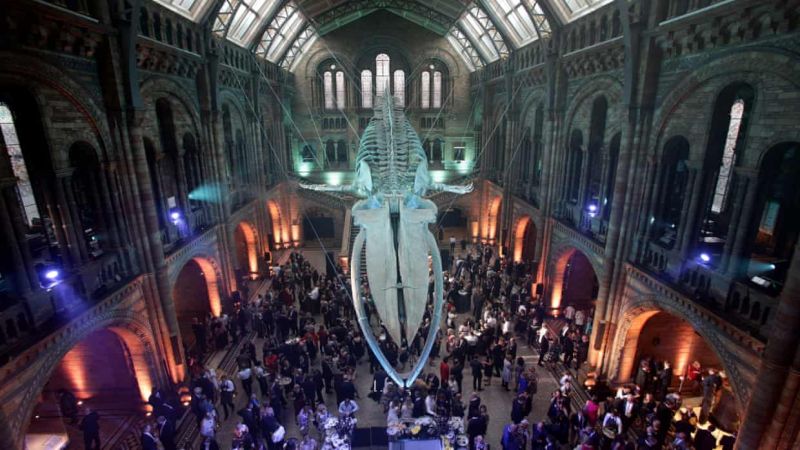
By Andrew Smith
Yesterday the Natural History Museum in London hit the headlines for all the wrong reasons. It was hosting a reception for the Saudi embassy in the UK - a glamorous affair that brought together high-ranking Saudi representatives and politicians and journalists from across the UK.
The timing could not be worse. The last few days have seen the Saudi Arabian government coming under far greater international scrutiny, with allegations that a journalist, Jamal Khashoggi, was murdered in its Istanbul Consulate.
During the reception the BBC asked the Saudi ambassador to the UK about Khashoggi’s disappearance. He said that he too “would like to know what happened,” stressing that hoped the investigations would provide answers “soon.” Regardless of his unconvincing protestations, the allegations have created such a diplomatic storm that even traditionally supportive governments, like the US and UK, have raised questions about its conduct.
All this comes at a time when the Saudi-led bombardment of Yemen is getting even worse. The last four months of war have led to a 164% increase in civilian deaths. In August, Saudi forces bombed a school bus. Dozens of children were killed in an assault that the Saudi military initially argued was a “legitimate military target.”
The bombardment would not have been possible without the support of arms-dealing governments like the one in Westminster. Since the war on Yemen began in 2015, the UK government has licensed almost £5 billion worth of arms to Saudi forces. These include the fighter jets, bombs and missiles that are playing a central role in the destruction.
Attendees at last night’s celebrations will have been sold a narrative and vision of a reforming government that is making big changes. It’s the same message that was pushed when the Saudi Crown Prince, Mohammed Bin Salman, visited London earlier this year for high-profile meetings with Theresa May, the Queen and other parts of the UK establishment.
The ambassadors will have said as little as they could about those that have suffered at the hands of the regime. Despite the rhetoric about liberalism and change, the last few years have seen an intensification of the crackdown against human rights defenders in the Kingdom.
In 2017 alone, over 100 people were executed by the Saudi authorities. Human Rights Watch has documented the increased arrests and abuses of women’s rights campaigners and activists. As Sarah Leah Whitson, the organization’s Middle East Director has said, “The Saudi government appears determined to leave its citizens without any space to show even rhetorical support for activists jailed in this unforgiving crackdown on dissent.”
There is no doubt that last night’s event was a clear and unambiguous show of soft power from a repressive dictatorship that enjoys a powerful voice in the corridors of Westminster and beyond.
Predictably, the Museum said that the decision is a commercial one, but the impact of its decision was political. Such a prestigious venue will be used to give an impression of legitimacy. At the same time, the message it will have sent to those living under repression is that their rights don’t matter.
It wasn’t the first time that the Museum’s events policy has come under question. In 2012 it hosted the reception for the Farnborough International Airshow, a major arms fair that brought many of the world's biggest arms companies together with repressive regimes from around the world. The Museum faced significant protests, but last night’s event suggests that it hasn’t learned any lessons.
The issue goes wider that the Natural History Museum. Corporations and governments with shameful records are hosting prestigious public venues all across the country. The reason they do this is because these venues offer respected public platforms and a veneer of legitimacy.
Hosting third parties such as governments or corporations is not a morally neutral act. Endorsements work both ways, and reflect on both parties. This is recognized by the Public and Commercial Sector Union, which represents 5,000 public gallery and museum workers across the UK. In 2015 its conference backed a motion to condemn arms company sponsorship of the cultural sector.
The reason for demanding better is not because campaigners don’t understand the difficulties and financial pressures that are facing the Museum. Rather it is because we recognize the crucially important role that it plays and want it to do the right thing. It’s time for museums and respected public institutions to send the message loudly and clearly that human rights abusers can never be welcome.
Source: Open Democracy, Edited by Website Team